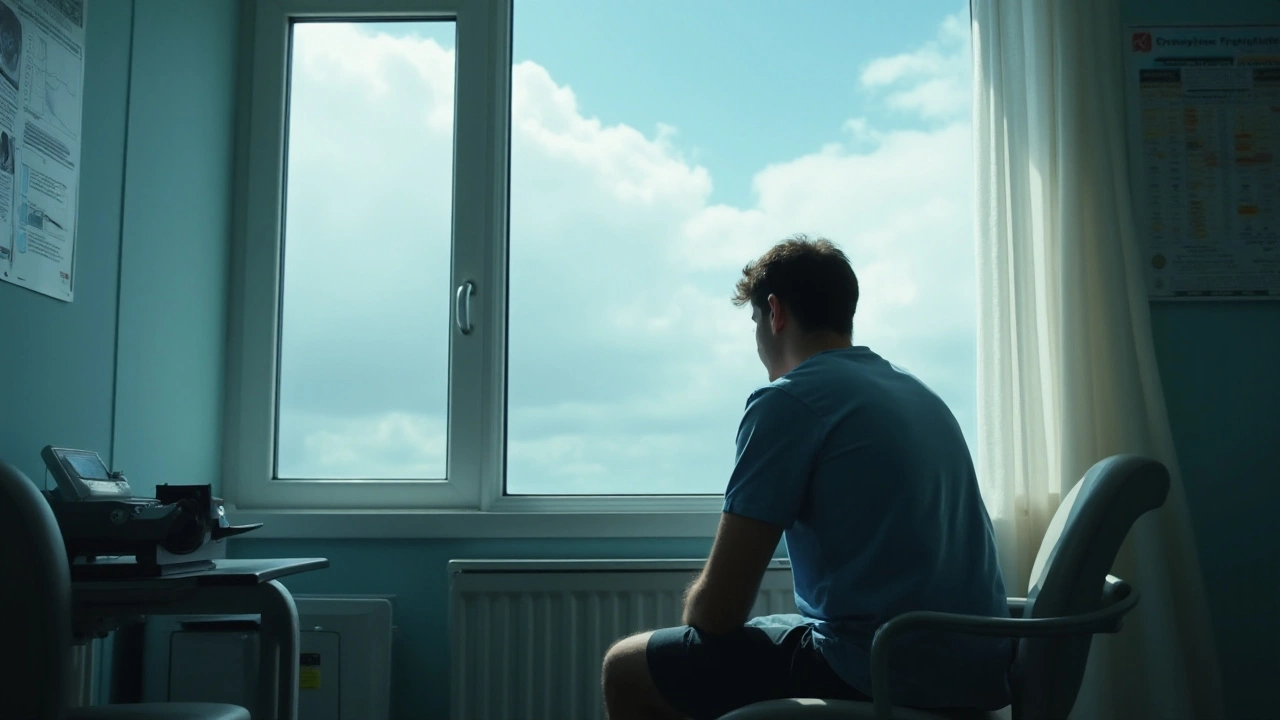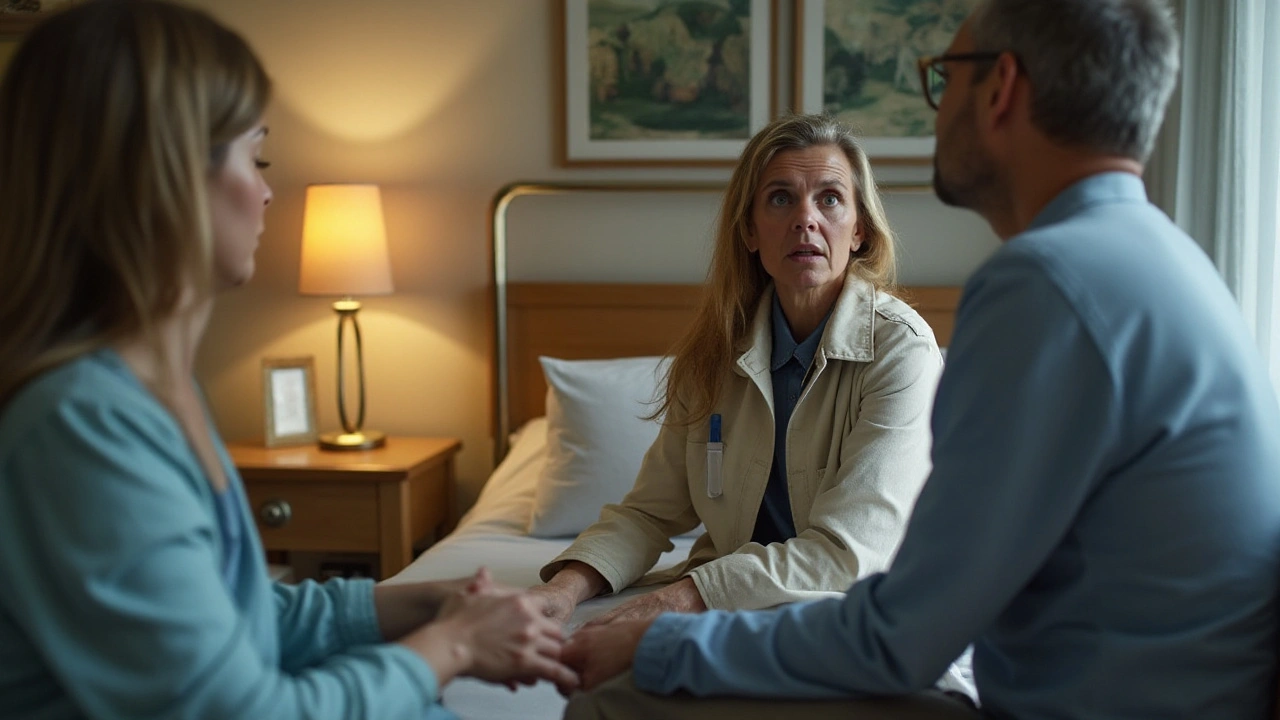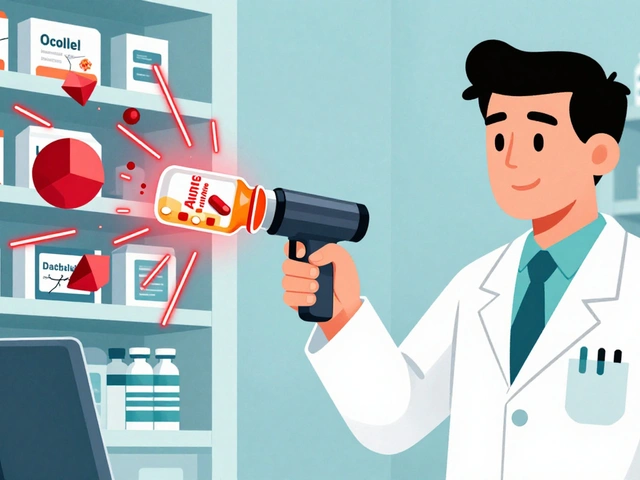Living with eye cancer can be overwhelming. On top of physical symptoms, mental health issues often arise, adding complexity to the experience. A diagnosis might bring about stress, anxiety, or even depression.
The link between eye cancer and mental health is a significant area of healthcare that needs attention. Understanding both the medical and psychological aspects can make a world of difference in treatment outcomes.
- Understanding Eye Cancer
- The Impact on Mental Health
- Research Insights
- Tips for Managing Mental Health
Understanding Eye Cancer
Eye cancer is a rare but serious condition that affects the tissues of the eye. There are different types, with melanoma being the most common. This cancer begins in the cells that produce pigment, the substance that gives your eyes their color.
Symptoms of eye cancer can vary, but they often include vision changes, such as blurriness or dark spots, and physical changes, like a growing lump in or around the eye. Early detection is crucial for effective treatment. An ophthalmologist usually diagnoses eye cancer through a combination of eye exams, imaging tests, and biopsies.
According to the American Cancer Society, about 3,500 new cases of eye cancer are diagnosed each year in the United States. This makes it relatively rare compared to other types of cancer. Despite its rarity, the impact on patients can be profound, not just physically but emotionally as well.
"Being diagnosed with eye cancer can be a life-changing event. It's important to have a support system in place," says Dr. Sarah Thompson, a leading specialist in ocular oncology.
Eye cancer is treated in several ways, depending on the type and stage of the cancer. Common treatments include surgery to remove the tumor, radiation therapy to kill cancer cells, and in some cases, chemotherapy. Advances in medical technology have improved the success rates of these treatments, but they can also bring about side effects that impact mental health.
One fact that surprises many is that eye cancer can spread—or metastasize—to other parts of the body. This is particularly true for melanoma, which often spreads to the liver. This potential to spread makes early detection and continuous monitoring very important for patients who are diagnosed.
Another aspect of eye cancer that's crucial to understand is the role of genetics. Some people are more susceptible due to genetic factors. If you have a family history of eye cancer or other types of cancers, it's essential to inform your healthcare provider for proper screening and preventive measures. Regular eye exams can often catch early signs that you might not notice yourself.

Research Insights
Recent studies have begun to shed light on the intimate relationship between eye cancer and mental health. Many researchers have noted that the emotional toll of a cancer diagnosis can be just as debilitating as the physical symptoms. For instance, a study by the American Cancer Society found that over 40% of cancer patients experience significant mental health challenges within the first year of diagnosis. This statistic highlights how crucial it is to consider both elements when treating patients.
One key finding is the role of stress in exacerbating both physical and mental health issues. When someone hears they have eye cancer, the immediate reaction is often fear and worry about the future. These emotions can trigger stress responses that impact both body and mind. Research from the National Institutes of Health has shown that chronic stress can weaken the immune system and make the body less capable of fighting cancer. This makes it even more important to address mental health alongside medical treatments.
"Addressing mental health is not just an option but a necessity for improving overall outcomes in cancer care," states Dr. Sarah Johnson, a leading psychologist specializing in oncology.
Another important area of research is the impact of treatments like chemotherapy and radiation on mental health. These treatments are known for their severe side effects, and these physical effects can have mental repercussions too. The fatigue, pain, and appearance changes that often accompany treatment can lead to anxiety and depression. Researchers are now advocating for a more holistic approach to cancer care that includes psychological well-being as a core component.
Interestingly, studies have shown that social support can act as a buffer against the mental health challenges faced by eye cancer patients. According to a report published in the Journal of Clinical Oncology, patients who have strong support networks tend to fare better both mentally and physically. This underscores the importance of involving family and friends in the treatment process. Social workers and psychologists are increasingly becoming part of the oncology team to ensure comprehensive care.
A table from a study on patients with eye cancer and their mental health outcomes might look like this:
| Mental Health Outcome | Percentage of Patients Affected |
|---|---|
| Anxiety | 35% |
| Depression | 28% |
| Stress | 45% |
One final point highlights how technological advancements are helping to bridge gaps between physical and mental health treatments. Telemedicine, for example, has made it easier for patients to access mental health services without having to travel. This is especially beneficial for those undergoing strenuous cancer treatments who may not have the strength to attend in-person counseling sessions. Incorporating mental health services into routine cancer care has never been more accessible.

Tips for Managing Mental Health
Dealing with a diagnosis of eye cancer can be incredibly stressful. The emotional and psychological toll it takes on patients cannot be understated. Here are some effective tips to help manage mental health during this challenging time.
Speak to a Mental Health Professional
Consulting with a mental health professional, such as a psychologist or a counselor, can provide significant relief. These experts offer strategies and coping mechanisms that can help you deal with anxiety, depression, and stress. In many cases, talking therapies like cognitive-behavioral therapy (CBT) have been effective. Speaking about your experiences openly can be therapeutic and can help you process your feelings in a healthy way.
Maintain a Supportive Network
The presence of a strong support network can make a world of difference. Family and friends can offer emotional support, while support groups provide a sense of community and understanding. Engaging with others who are also dealing with eye cancer or have been through similar experiences can be particularly comforting. It's often said that shared experiences are halved troubles, and being part of a support network can help validate your experiences.
Stay Active
Physical activity plays a vital role in maintaining mental health. Even light exercise, like walking or yoga, can boost your mood by releasing endorphins. Staying active helps to divert your mind from stress and anxiety related to your diagnosis. It's advisable to consult with your healthcare provider to find the most suitable activity for you, considering your current health condition.
Practice Mindfulness and Relaxation Techniques
Mindfulness practices and relaxation techniques like meditation, deep-breathing exercises, and guided imagery can significantly reduce stress. These techniques help you stay present and focused, minimizing worries about the future. Apps and online resources are available to guide you through these practices, making them more accessible.
Create a Routine
Having a consistent daily routine can create a sense of normalcy and control. It helps in managing time efficiently and reduces periods of inactivity, which can lead to overthinking. Try to wake up and go to sleep at the same time every day, plan your meals, and allocate time for activities you enjoy.
Stay Informed, But Avoid Overloading
Being well-informed about your condition can be empowering, but information overload can lead to increased anxiety. Rely on trustworthy sources for information about eye cancer and its treatment. It’s important to strike a balance between staying informed and not letting the information overwhelm you.
"It’s crucial to balance being informed and not letting the information overwhelm you," says Dr. Jane Smith, a leading psychologist specializing in cancer care. "Information overload can escalate anxiety, so choose your sources wisely."
Consider Medication
In some cases, medication might be necessary to manage symptoms related to mental health. Antidepressants or anti-anxiety medications prescribed by a psychiatrist can provide relief during particularly challenging times. It's important to discuss this with your healthcare provider to determine the best course of action.
By incorporating these tips, you can manage your mental health effectively while navigating the complexities of an eye cancer diagnosis. Remember, your mental well-being is just as important as your physical health in fighting this battle.






Life throws us curveballs, and an eye cancer diagnosis is a heavy one, but the mind can become a steadfast ally when we consciously nurture it 🌟. The emotional turbulence you feel is a natural response, yet each breath you take can be a small rebellion against fear. Drawing on cultural stories of resilience reminds us that healing is woven from both body and spirit. Embrace mindfulness like a ritual, letting each moment anchor you in the present. Remember, even a single smile can light up the darkness inside.
September 20William Goodwin